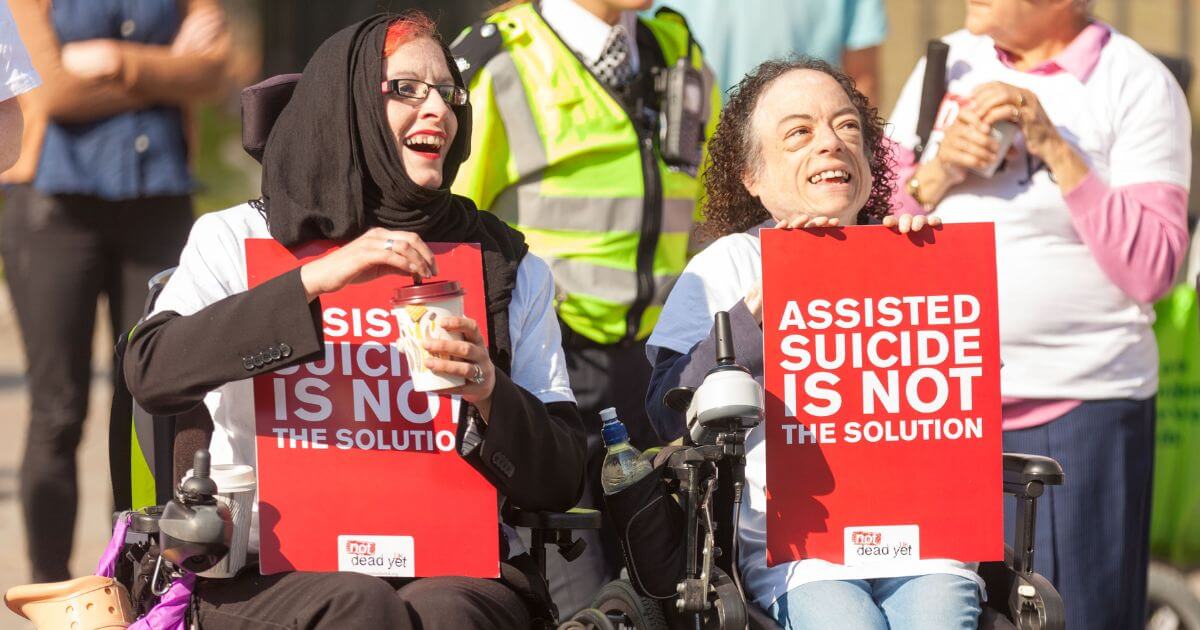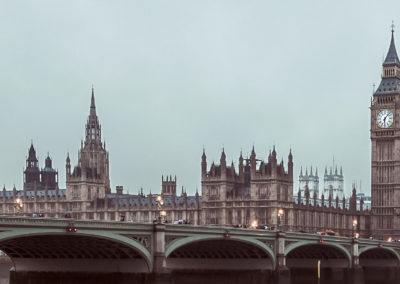A group of disability rights activists are “deeply concerned” that they may not even be asked to give public evidence at the Commons inquiry into assisted suicide.
Last month, the Health and Social Care Committee began taking oral evidence on the legalisation of assisted suicide in England and Wales. During the first session, they heard from four Peers with an interest in the topic and three academics.
Two peers, Baroness Finlay and Baroness Hollins, spoke out against assisted suicide while Lord Falconer and chair of campaign group, Dignity in Dying, Baroness Meacher, spoke in support of the practice.
Concerns were raised about potential biases in the inquiry as none of the academics in the oral evidence panel opposed assisted suicide.
Not Dead Yet UK (NDY UK), a leading disability rights campaigner, has told Disability News Service that it is concerned that it will not even be asked to give evidence to the Committee. NDY UK want a commitment that people with disabilities or their organisation will be called to give oral evidence.
Co-convenor of NDY UK, Phil Friend, said “As an organisation that strongly advocates for the rights and well-being of disabled individuals, we believe that the voices of disabled people must be included in any discussions that can directly impact their lives and the perception of their quality of life.”
“[W]e firmly believe that the lived experiences and perspectives of disabled people are crucial in understanding the complexities and consequences of assisted dying and assisted suicide.”
“Excluding disabled people’s voices from these discussions could lead to a skewed understanding of the issue and, ultimately, result in policies that may be detrimental to the disabled community”, he added.
In a statement from the Commons committee, a spokesperson declined to make a commitment that people with disabilities would be able to give oral evidence.
In the first session of hearing oral evidence last month, Baroness Finlay and Baroness Hollins both argued against the introduction of assisted suicide.
Baroness Finlay, a long-time opponent of assisted suicide and euthanasia described how her own mother was initially strongly in favour of euthanasia.
“When she was dying and we thought she had six weeks to live, she was extremely angry with me that I’d opposed it [euthanasia]. Four years later, she said that she was really glad and that she had the most incredibly rewarding time seeing her grandson born and so on”.
One in five cite loneliness as a reason to want to die
Euthanasia has been legal in Canada since 2016. In 2021, 10,064 people ended their lives by assisted suicide and euthanasia in Canada, an increase of over 32% from the previous year, accounting for 3.3% of all deaths in Canada.
According to the latest report on Medical Assistance in Dying from Health Canada, 17.3% of people also cited “isolation or loneliness” as a reason for wanting to die. In 35.7% of cases, patients believed that they were a “burden on family, friends or caregivers”.
Right To Life UK spokesperson Catherine Robinson said “Whether by intention or not, assisted suicide and euthanasia legislation targets people with disabilities and often implies that their lives are not worth living or that people with disabilities should not be granted the same protection against coerced or pressured suicide as everybody else.”











